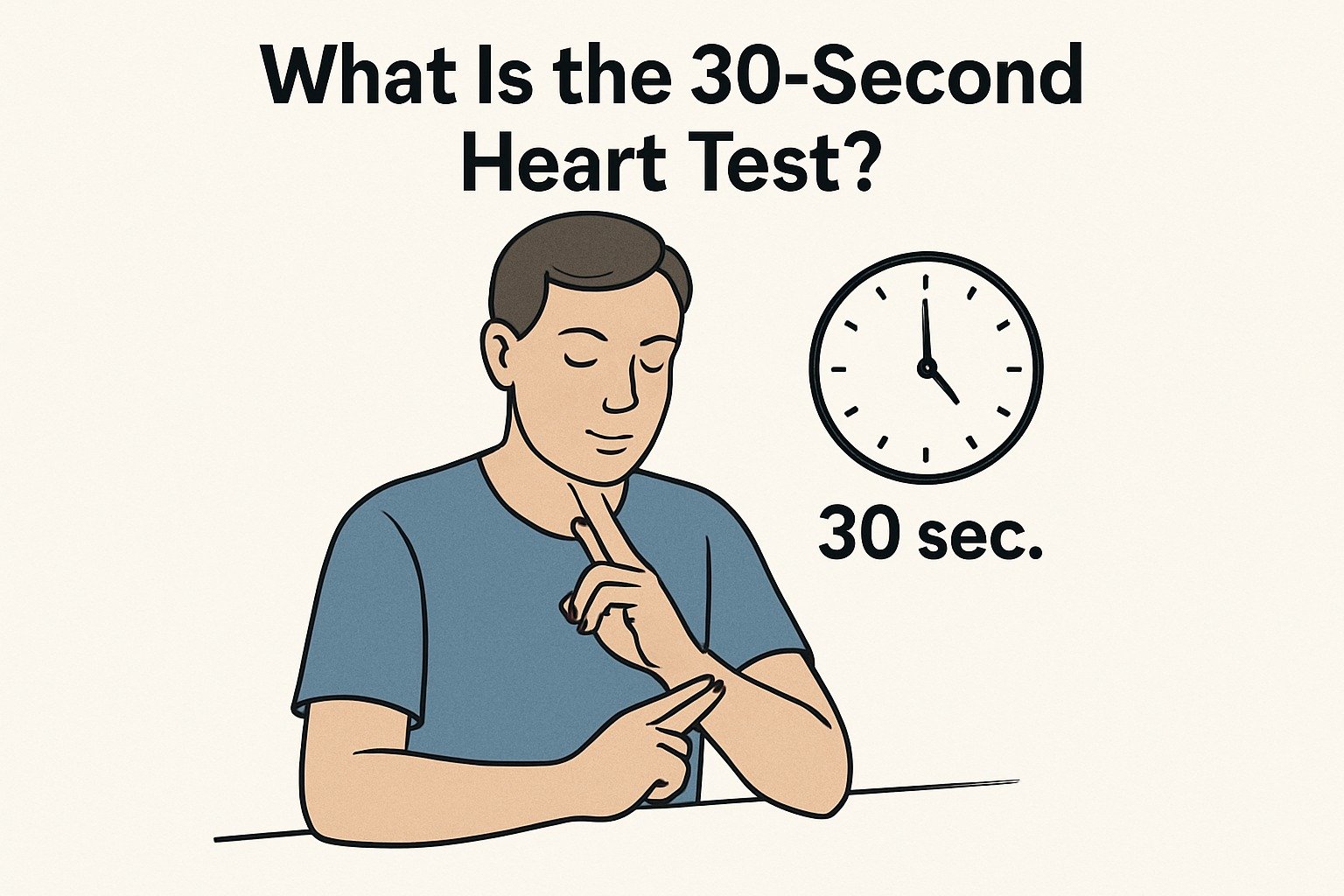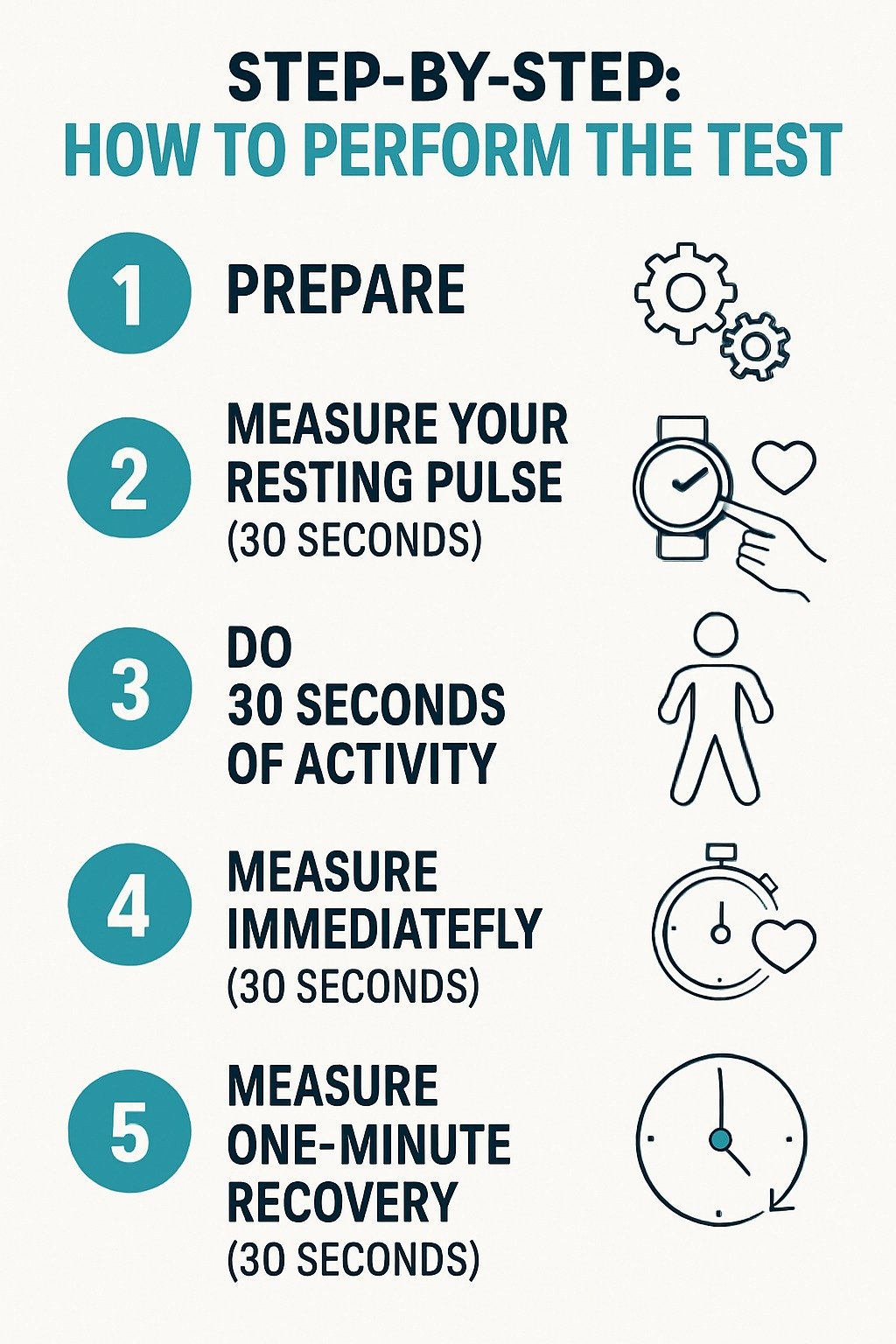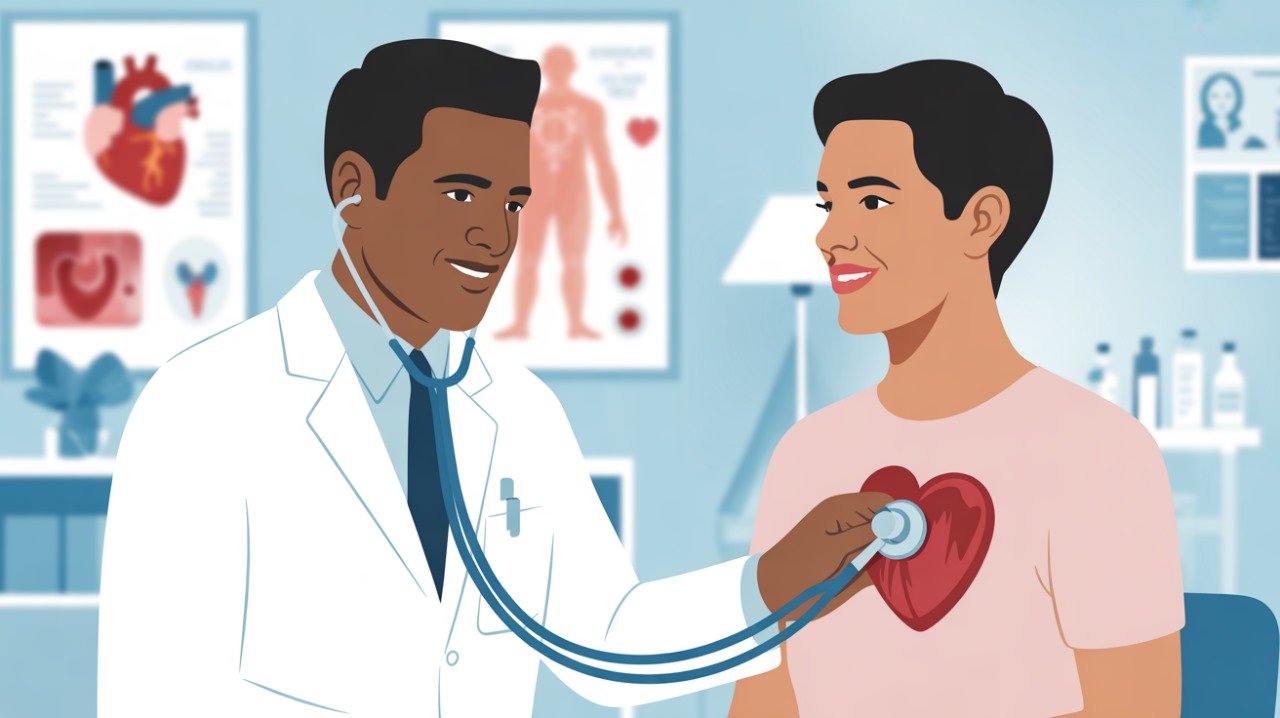Heart disease can strike silently—but one simple 30-second test could give you a lifesaving warning. In simple terms, this is a quick self-check that helps you notice if your heart rate and recovery look normal after light exertion. The 30-Second Test That Could Save Your Heart is not a diagnosis; it’s an at-home screening that can nudge you to seek care sooner if something feels off. If you live in or around Chembur, this can be your first step toward informed, preventive heart health.

This quick check evaluates how your pulse changes with mild effort and how fast it “recovers” afterward. The practical version: do 30 seconds of stepping or brisk marching, measure your pulse immediately, then again one minute later to see how much it has dropped. A faster drop typically signals better cardiovascular fitness and autonomic balance, while a slower drop may suggest lower fitness or added stress. For interpretation tailored to you, a Cardiologist in Chembur can connect your numbers to your age, medications, and overall risk.
Your heart rate reflects how efficiently your cardiovascular system meets demand and then returns to baseline. Recovery is largely guided by your autonomic nervous system—healthy hearts switch off “fight or flight” quickly after effort. When recovery is slow, possible drivers include deconditioning, high stress, anemia, dehydration, medication effects, or underlying cardiac strain. If you’re unsure how your results fit your history, a Heart Specialist in Chembur can advise on next steps.

1) Prepare
2) Measure your resting pulse (30 seconds)
3) Do 30 seconds of activity
4) Measure immediately (30 seconds)
5) Measure one-minute recovery (30 seconds)

A resting heart rate for many adults falls roughly between 60–100 BPM, while trained individuals may sit lower without symptoms. A healthy recovery often shows a drop of about 15–25+ BPM within the first minute after light exertion, though exact values vary by age, fitness, and medication use. Small drops, irregular rhythms, or symptoms should prompt a professional review. For a measured, compassionate opinion, the Best Heart Doctor in Chembur can help you decide whether you need simple lifestyle changes or diagnostic tests.
Abnormal results are a signal—not a verdict—to look deeper with clinical tools. Your doctor might suggest an ECG, echocardiogram, ambulatory rhythm monitoring, or a supervised stress test to clarify what’s going on and how to treat it. If additional imaging is needed, coronary assessment can be planned to align with your symptoms and risk profile.
For advanced imaging or precise coronary evaluation recommended by your clinician, consider booking at the Best Hospital for Angiography in Chembur:for streamlined diagnostics and coordinated follow-up.
If you’re evaluating options for minimally invasive treatments or catheter-based care, the Best interventional cardiologist in Chembur can help you understand procedures, recovery timelines, and expected outcomes in everyday language. This ensures you choose only what’s necessary and truly beneficial.
When surgery is the safest path based on imaging and symptoms, the Best Cardiac Surgeon in Chembur provides clear risk–benefit guidance, meticulous planning, and continuity through recovery. Thoughtful surgical decisions reduce complications and support faster returns to normal life.
For complex cases needing a seasoned opinion, families often seek a Top Cardiac Surgeon in Chembur to align on the most effective, least disruptive plan. Having clarity early can spare you unnecessary delays.
If you want a long-term prevention partner, the Best Cardiac Doctor in Chembur can help you fine-tune blood pressure, cholesterol, diabetes control, and fitness, so your numbers trend better month by month. Prevention compounds over time—and saves you worry.
When coordination matters across tests, medications, and follow-ups, a Cardiac Specialist in Chembur offers continuity and fast access if symptoms change. That continuity can be the difference between anxiety and confidence.
For valve disease, coronary disease, or structural heart concerns, choosing the Best Heart Surgeon in Chembur ensures your care escalates appropriately and only when conservative options are no longer enough. That balance protects both safety and quality of life.
For directions, parking, and appointment slots, use this map to reach a Heart Doctor in Chembur and bring your recorded readings or wearable data to speed up decision-making at your visit.
If you have diagnosed heart disease, a pacemaker, advanced lung disease, severe anemia, or rate-controlling medications (e.g., beta-blockers), ask your clinician how to adapt the test. Stop immediately if you feel unwell while testing. When in doubt, skip self-testing and arrange a professional assessment.
A half minute can change your trajectory: notice your numbers, act early, and follow up locally for clarity and confidence. The 30-Second Test That Could Save Your Heart is a simple, non-invasive nudge to pay attention before small issues grow big. Take 30 seconds today, jot down your results, and book a review if anything seems off. Early detection steers you toward safer, simpler solutions. Take 30 seconds today for a healthier heart tomorrow.
Regular heart check-ups help detect risk factors like high blood pressure, diabetes, or cholesterol early, reducing the chances of heart disease and stroke.
The check-up may include a physical exam, ECG, echocardiography, treadmill test, and blood investigations. Advanced procedures like coronary angiography may be recommended if needed.
Dr. Amit Patil is regarded as one of the best cardiologists in Chembur, offering preventive, diagnostic, and interventional cardiac care.
Even if you are healthy, it’s advisable to schedule a check-up once a year after the age of 40. High-risk individuals may need more frequent visits.
Yes. Regular exercise, a balanced diet, quitting smoking, and managing stress can greatly reduce the risk of heart problems and the need for advanced treatments.
Yes. Dr. Patil provides advanced treatments, including Coronary Angiography in Chembur, angioplasty, and pacemaker implantation, along with preventive cardiology care.